LoCEL-H2 team members


Dr Angel Kirchev received his Major from the Faculty of Chemistry of University of Sofia in 2000. The same year he joined the Bulgarian Academy of Sciences, contributing to several R&D projects. In this period he developed his PhD on processes of oxygen recombination in sealed lead-acid batteries, for which he received the Dave Rice award in 2005. The same year, Dr Kirchev joined the energy storage team of CEA as post-doctoral fellow, being appointed as project manager in 2007. In 2013 he obtained a HDR diploma from University of Grenoble. He is author and co-author of 29 publications on electrochemistry (h-index = 16), 2 book chapters and 21 patent applications in the field of the electrochemical energy storage.

Grégory Païs graduated in Electronic and Embedded Software from the Polytech’Savoie Engineering school and holds a PhD in the the Computer Science, Systems, Information and Knowledge Processing Laboratory (university of Savoie Mont-blanc, France). He has over 14 years experience on numerical modelisation and system control implementation over industrial and research domains. Since 2019, he joined CEA and involved in several application projects and especially the European XFLEX Hydro project to develop the hybridization control algorithm for the Vogelgrün hydro power plant demonstrator.

Hervé Buttin has a degree in electrical engineering and industrial computing from the Lyon 1 university of technology. He is an expert in control/command, testing and validation of embedded software, with over 25 years’ experience in the field of energy management, in both industrial R&D and institutional contexts. He joined CEA in 2005 to work on smart grid projects, deploying algorithms on demonstrators and setting up digital data exchange infrastructures and SCADA systems.


Carl Telford has over 20 years experience in strategic research, consulting, and R&D. An expert in futures thinking, roadmapping, and facilitation. In his career to date, Carl has helped major public and private organisations across the world develop strategies, with particular experience in the automotive, off-highway, energy and infrastructure, and chemicals and materials sectors. His academic background includes a PhD in materials engineering.


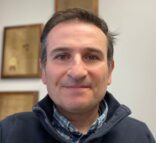
Nicolas Clement has over 30 years of experience in R&D for speciality papers including 23 years of research in microglass based media for lead acid battery application. He has been covering R&D for VRLA all over the world spending 9 years in Europe, 2 years in China and the rest in North America. His experience is also covering application support for lead acid battery manufacturers all around the world, leading multiple teams of scientists supporting problem solving and new battery development.

Mahadevaswamy has over 18 years of experience in polymer science, he has played a significant role in the development of wetlaid battery separators for flooded lead acid battery applications. He has successfully led cross-functional teams to develop customized manufacturing lines. He has led greenfield projects such as the Lead Acid Battery Research and Knowledge Center and the Advanced Materials Laboratory. He has been covering Asian and South American territory for application support for flooded battery manufacturers.

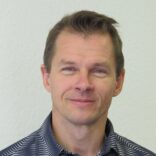
Götz Langer holds PhD on physical chemistry on in situ interface spectroscopy of electrochemical active interfaces. He is member of Hoppecke R&D team since 1999. Development includes process engineering issues of LAB production as well as layout, testing and research on LAB. The team has responsibility on development for whole international company. Since 2022 he is head of the LAB developing team.
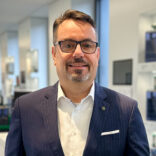
Andreas Husmann studied electrical engineering and earned his PhD at RWTH Aachen University (Germany). After holding various management positions in the IT industry and in mechanical and plant engineering, he has headed product management at the global battery manufacturer HOPPECKE since 2018. With his team, he develops and markets innovative energy storage solutions for numerous mobile and stationary fields of application.

Dr. Bernhard Riegel completed his Ph.D. in Inorganic Chemistry at the University of Stuttgart in 1994. Since 2001, he has been engaged in R&D at HOPPECKE Batterien. In 2003, he assumed the leadership of R&D for the entire HOPPECKE Group. In 2007, he played a pivotal role in establishing HOPPECKE Advanced Battery Technology GmbH (INTILION GmbH), introducing Li-ion technology to the industrial battery market at HOPPECKE. Dr. Riegel serves as an advisor to Battery Research Germany (BMBF), Associate Delegate of the Battery European Partnership (BEPA), advisor to FFB Münster, and Task Force Innovation Leader at EUROBAT.

Robin Frese studied chemical engineering at the University of Paderborn. In 2018 he completed with his master thesis in HOPPECKE on carbon additives in the positive active mass with the aim of reducing the red lead usage. Afterwards he started in R&D department with a focus on carbon additives in negative active mass. Since then he has been researching on various additives for LAB and also developing various products for HOPPECKE.
Jens Bäcker studied electrical engineering at the University of Siegen, specializing in energy technology. After graduating with a degree in engineering, he worked in project planning for medium and low-voltage grids in a regional supply company of RWE before joining HOPPECKE in 1997. In addition to various positions in international sales and head of product management RP, he is now Senior Product Manager with technical responsibility for stationary lead batteries.
David Engemann studied physics at the Technical University Dortmund where he also completed is PhD. He graduated in experimental solid-state physics with focus on electronic and structural properties of silver nanoparticles. Since 2015 he is part of the HOPPECKE R&D team. From 2015-2021 he worked as test engineer and was responsible for battery tests and laboratory organization. Since 2021 he is part of the LAB development team with focus on solid lead, lead alloys and related manufacturing processes.
Jendrik Gillaschke studied mechanical engineering followed by a master´s degree in renewable energies as the University of Applied Sciences in Cologne. After completing his master’s thesis on the electrical energy system in the municipality of Brilon, he joined Hoppecke as Product Manager for stationary battery application in 2018.


Prof Strickland, CEng FIET at Loughborough University, has had a career in electrical power spanning over 25 years in both industry and academia. Her industrial work includes roles at E.On (1995-2000) and Rolls Royce Fuel Cell Systems (2005-2010). Her research has focused on green hydrogen energy storage systems, with a wide portfolio including research grant income of >£3m on projects worth over £30m A large part of this research is carried out in collaboration with industrial partners. Dani sits on the IET code of practices for energy storage committee and is vice chairman of IEEE P1459 and P120 standards commitees.

Dr Wilson has expertise in systems architecture, systems design, automotive systems, hardware design and low cost manufacturing. He is currently developing a battolyser from lead-acid battery technology. He is also engaged in a project focussing on systems engineering approach for the deployment of next-gen wireless charging solutions for EVs in the UK. He has led a low-temperature selective catalytic reduction research program at Loughborough University and is the inventor of Ammonia Creation and Conversion Technology. Dr Wilson has won numerous awards including the Times HEA 2017 for Technological Innovation of the Year and the Autocar Sturmey Award 2018 for Innovation and Achievement in the Motor Industry.

Dr. Ashton graduated in 2017 from Loughborough University, UK. After completing her materials chemistry Ph.D in 2021, with the research group of Prof. Dann, she has continued her studies in hydrogen research as a postdoctoral research associate. She was part of the team, alongside Prof. Wijayantha, that delivered the Ten Point Green Growth plan for the Midlands Engine. She has recently joined the research group of Prof. Strickland, investigating battolysers for green hydrogen production.

Dr. Wilson graduated in 2013 from Loughborough University, UK, prior to completing a Ph.D in Chemistry in 2018 within the research group of Prof. Kelly. This was a multidisciplinary piece of research, working alongside the School of Social Science and Historic England. Upon completion of his Ph.D, he was part of a small team that installed a new laboratory in the Loughborough Science and Enterprise Park, working as a Laboratory Chemist, until recently joining the research group of Prof. Strickland, investigating battery electrolysers for green hydrogen production.

Matt Brenton began battery electrolyser research in 2020 as part of a renewable energy master’s supervised by Prof Strickland and Dr Barton. Following their success, he has continued this research as part of a PhD programme at Loughborough, looking into modelling, system design, hydrogen safety, life cycle analysis, and battery management. Matt’s undergraduate degree is in chemical engineering.
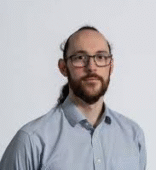


Dr Khan is Associate Professor of Electrical Engineering, Senior Member of IEEE and the Director of Energy and Power Systems Lab at LUMS. He received his MS and PhD in EE from University of Manchester, UK in 2006 and 2010, respectively. His core area of research is renewable integration in urban and rural settings, focusing on novel grid architectures for low-cost rural electrification. He is also engaged in advancing the adoption of solar photovoltaic (PV) technology in developing nations, concentrating on optimizing resource use to enhance the socioeconomic conditions of communities.
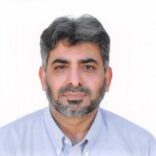
Prof. Nauman Ahmad Zaffar currently serves as Professor and Director of National Incubation Center, Lahore (NICL) and is also a member of the Steering Committee of LUMS Energy Institute (LEI). His areas of research include work on smarts for existing grids and new grid architectures, Electric vehicles, Battery storage systems, Power electronic converters for efficient usage of renewable energy resources and Electric drives for energy efficiency and conservation.

Sarmad Sohaib received the BSc degree in electrical and electronics engineering from Ghulam Ishaq Khan Institute of Engr. Sciences & Tech. (GIKI), Pakistan in 2005 and the Ph.D. degree in electrical and electronics engineering from the University of Manchester, Manchester, United Kingdom. His research interests include green communications, cooperative MIMO schemes, and machine learning for internet of things.

Mashood did his Ph.D. (2018) and Postdoctorate (2021) in Electrical Engineering from LUMS and Aalborg University Denmark with a focus on developing solutions for energy poverty. He has extensive experience as project manager and grant writer for proposing, managing, and coordinating European funded projects including Horizon Europe and Innovation Fund. He has more than 15 years of teaching, research, consultancy and industry experience. He has a diverse research profile and more than 50 scientific publications including research articles, book chapters, proposals, and patents.

Dr. Razvi holds a Ph.D. in electrical engineering from LUMS and has been part of the Power and Energy Systems Laboratory at LUMS since 2016. His primary research interests include electricity markets, power system optimization, electric vehiceles and microgrids. He actively contributes to LOCEL-H2, overseeing research associates and assistants in microgrid simulations and implementation.

Reesha Arshad is a Ph.D. student at the Department of Electrical Engineering at LUMS. The main area of her research is optimal sizing of solar-powered distributed energy systems with power sharing. Over the past 2 years, Reesha has been active in research on socio-economic impacts of improved energy access, including the use of energy to enable climate change adapatation and enhance resilience of women in impoverished communities around the world.

Hayder Ali, a Ph.D. candidate in the Department of Electrical Engineering at LUMS, focuses on a broad range of research topics including power generation from photovoltaic systems and analyzing module technologies and battery performance. His work has led to collaborations with prestigious institutions such as NASA, and the Center for Advanced Life Cycle Engineering (CALCE) at the University of Maryland, USA.
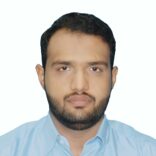
Hafiz Mian Muhammad Adil holds an M.S. degree in electrical engineering from the National University of Sciences and Technology (NUST), Islamabad, Pakistan. Currently, he is a Ph.D. student and Research Assistant affiliated with the Energy and Power Systems (EPS) cluster at LUMS. His research is concentrated on developing and validating optimally tuned hybrid nonlinear controllers for maximum power point tracking, DC microgrids, transportation electrification, and reconfigurable power converters for grid interactions.

Khadijah Ahmed Khan holds a MSC degree in Renewable Energy and Clean Technology from the University of Manchester, UK and is currently enrolled as a Ph.D Student in the Department of Electrical Engineering at LUMS. Her research is focused on the optimization of solar PV systems for power generation and lifecyle analysis of solar PV systems from circularity perspective.

Uzair Ahmed holds a degree of MSc. Electrical Engineering in Energy and Power Systems from LUMS, and he has been working as a Research Associate and Lead Engineer on the DC Microgrid project since 2021. His primary responsibilities include developing DC Microgrid’s cloud communication, designing and testing Microgrid hardware, conducting field surveys for Microgrid installation and deployment, overseeing the DC microgrid’s operational and maintenance requirements, and contributing to the research of his colleagues and Research Associates.

Abdur Raheem studied electrical engineering at the National University of Sciences and Technology (NUST), Pakistan. He then completed his master’s in power and energy engineering from LUMS, Pakistan. His duties include doing simulations related to power systems on different software and implementing various electrical engineering concepts for real-world applications. He is also responsible for designing and testing printed circuit boards for relevant applications.
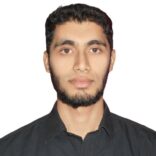
Muhammad Anas Baig holds an M.Sc in Electrical Engineering from the University of Engineering and Technology Lahore, Pakistan. He has been a member of the Energy and Power Systems cluster since July 2023. His role is to design and develop bidirectional DC-DC converter for communal loads. He is also actively engaged in research on control frameworks for modular converters.

Sajjid Hussain is a graduate of LUMS, where he received his MSc. degree in Electrical Engineering with a specialization in Energy and Power Systems. Since 2023, he has been working as a Research Associate and test design engineer in DC Microgrid hardware development. His primary duties are testing printed circuit boards (PCBs) according to their designed requirements and ensuring the high quality of electrical components and PCBs. He also coordinates with field technicians to resolve electrical malfunctions in the deployed DC Microgrid systems.


Jean Michel Meunier has been involved in the social and health field for over 17 years as an executive director. He graduated from the School of Advanced Public Health Studies (University of Rennes) and has an Executive Master of Business and Administration (University of Paris Dauphine Sciences et Lettres). He is committed to advancing the adoption of solar photovoltaic technologies in Côte d’Ivoire, where he is also involved in the humanitarian sector. He specialises in organisational management, project management, human resources management, logistics and real estate management, and financial management. He has managed groups of establishments with more than 100 employees and more than €8M in annual turnover.

Hervé Gregoire-Mazzocco is a global expert in the fields of sustainable energy, green hydrogen & smart city technologies. Born in Côte d’Ivoire and with a multicultural background, he has great understanding of different cultures and business practices in various regions of the world, translating into a strong ability to develop sound market strategies and to closing deals and creating long lasting partnerships. He has had various scientific & technical roles both in research organisations such as NASA and in tech ventures. He has experience in integration of advanced technologies for renewable energy solutions, smart solar micro-grids and energy storage systems, and has developed a patent for residential H2 power systems.

Hawa Ndao is formerly an energy efficiency engineer at Greenflex, a TotalEnergies subsidiary. With a double degree in Energy efficiency and Renewable energy from ESIEE Paris and Heriot-Watt University, she is embarking on a transformative journey with RHYDE. She is thrilled to be working alongside the whole LoCEL-H2 team to design innovative and scalable energy systems to tackle energy poverty in developing countries.
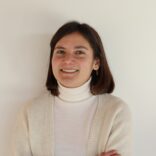
Laura has +7 years of experience in the field of energy access and decentralized energy generation.
Within the sector she has extensive experience in project development, and in project management and finance.
She also has experience in the analysis of regulatory frameworks, business and financial models for mini-grids and commercial operations.

Esteban Manuel Pérez González has over 15 years’ experience in solar energy, designing and optimising photovoltaic solutions and hybrid mini-grids for energy access in companies such as Sunkofa Energy, PowerCorner by Engie and SunEdison.


Associate professor in political science, Rosanna De Rosa teaches Political and Institutional Communication at the Department of Social Sciences, University of Naples Federico II. Her reserach interest deals with constituency communication, and, in general, the intersection between politics, democracy and new technologies. She has been involved in different European projects as coordinator or PI, some of them in the field of renewable energies.

Ivano Scotti is researcher in the field of Environmental Sociology at the Department of Social Sciences – University of Naples Federico II. He is working on the green energy transition process in Western countries focusing on renewable energy communty experiences and agrivoltaic solutions. On the energy topic, he also analysed correlated social problems, like climate change negationism and green jobs & new professions.
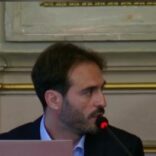
Dario Minervini currently holds the position of Associate Professor at the Department of Sociology, University of Naples “Federico II”. His research interests intersect the issues of socio-materiality, sustainability and innovation.
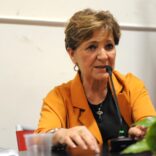
Anna Maria Zaccaria is full professor of Sociology of Environment and Territory at the Department of Social Sciences University of Naples Federico II. She is also the University contact person in the network of sustainable universities (RUS) and responsible for the Federico II for the Sustainability and Climate Change Domain in the Aurora Alliance-EU network. She participates in several research projects, national and international, on the topics of urban and social regeneration of suburbs, inland areas, sustainable development, risk and disaster governance.

Enzo Vinicio Alliegro is associate professor of cultural anthropology at the Department of Social Sciences, University Federico II of Naples. His research interests focus mainly on the history of Italian and North American anthropology, political, social and historical anthropology, and symbolic, landscape and environmental anthropology.

Amalia Caputo is Associate Professor in Social Research Methodology at the Department of Social Sciences, University Federico II where she teaches Social Research Techniques. Her research interests range from social inequalities, youth policies (school-to-work transition and school drop-out policies), reconciliation and parenting support policies, to gender studies using the empirical science method.

Giulia is a social scientist specialising in gender, energy transitions and sustainability. She has recently worked as a Research Fellow at the Science Policy Research Unit of the University of Sussex on three projects on energy transitions for Net Zero also exploring issues related to gendered skills in the energy transitions sectors. Her PhD focused on women’s empowerment and energy in rural India. Giulia also worked for different agencies within the fields of sustainability and international development in the UK and in India.

Antonia Murolo holds a Master’s degree in Public, Political and Social Communication from the Department of Social Sciences at the University of Naples Federico II.
Roberta Tofani holds a Master’s degree in Digital sociology at the Department of Social Science of the University of Naples Federico II.
Alice Palmieri is an International Relations student at the University of Naples Federico II.

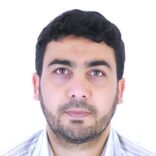
Yassine Ben Salem is an associate professor of National Engineering School of Gabes at the University of Gabes (Tunisia) since 2010. He earned his Electric Engineer degree at the Engineering school of Monastir (1998) and his Master (2004) and PhD (2011) at the engineering school of Sfax. His research interest includes ICT technologies, Innovation, Energy and Smart Cities, Smart building and AI (25 publications). He has over 12 years of teaching experience in renewable energy. Yassine is also the founder of the Tunisian association of science and research.

Nihel Chekir received the National Engineering Diploma and the Diploma of Doctor in Energetic Engineering from the National Engineering School of Monastir (Tunisia). She is, currently, an Associate Professor at the National Engineering School of the University of Gabes (Tunisia) expert in renewable energies and environment. She had coordinated the Mechanical-Energetic Engineering Research Master Degree in the National Engineering School of Gabes for four years. Nihel Chekir is an active associative member leading many international funded projects. She contributes in ERASMUS+ projects too.
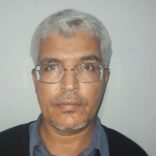
Ali Snoussi is an Associate Professor at the Department of Mechanical Engineering of the National Engineering School of Gabes (Tunisia). He holds a PHD degree in Energetic Engineering from National Engineering School of Monastir ( Tunisia) and has 25 years of experience of teaching and scientific research. As a member of the academic staff of Gabes University, he was an active memeber in two projects in the framework of European programs: a Tempus project named Defi-Averroes with University of MontPelier II and an IMC Erasmus+ project with Technological University of Compiegne.
